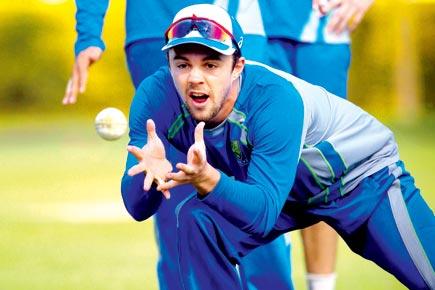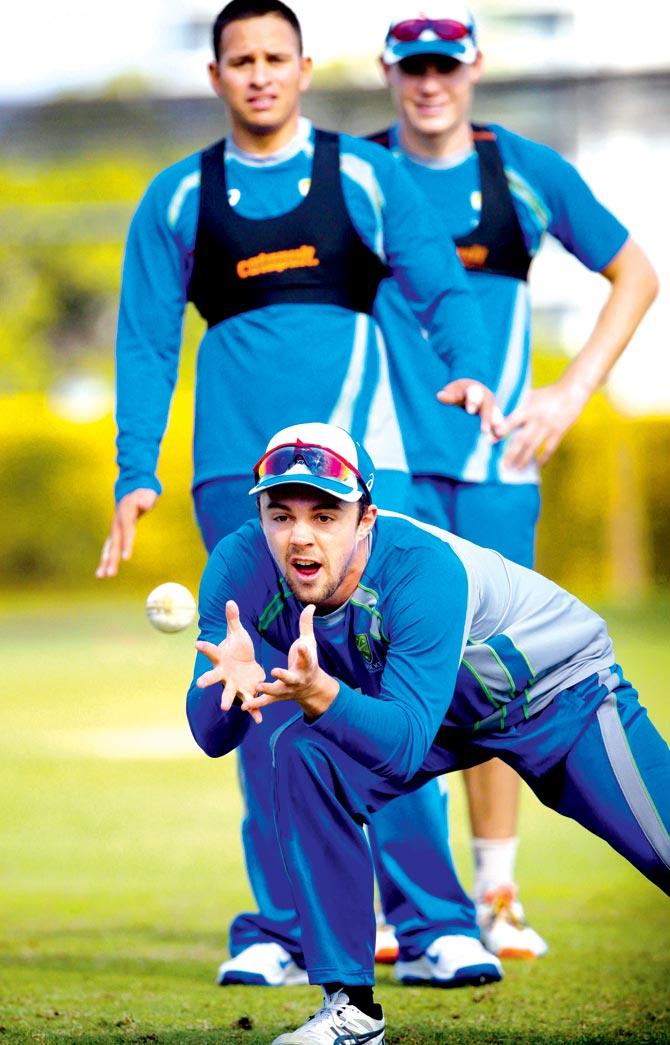It has to be a partnership where both CA and players have a vested interest in growing the game. There also has to be trust and respect on both sides for it to work successfully

Travis Head of Australia 'A' catches the ball as skipper Usman Khawaja looks on during a practice session prior to boycotting the SA tour in Brisbane on Tuesday. Pic/AFP

Travis Head of Australia 'A' catches the ball as skipper Usman Khawaja looks on during a practice session prior to boycotting the SA tour in Brisbane on Tuesday. Pic/AFP
It appears that the two main objectives of Cricket Australia (CA) in their increasingly acrimonious dispute with the players is to reduce the amount of money being paid to first-class cricketers and to split their association.
If that's not the objective then why offer more money to the elite players and at the same time try and do away with the revenue sharing clause in the MOU?
Firstly, the issue of the amount of money paid to first-class players. CA says it wants to reduce this to overcome the shortfall in funds available to the grassroots level of the game. Their main concern is to stop the good young athletes choosing other sports, attracted by the greater odds of getting a contract and the higher remuneration available.
The CA case doesn't stand close scrutiny.
If other sports are more attractive to good young athletes then why would they reduce the money available to Australia's first-class cricketers?
Surely the lure of earning a lucrative wage is one way of stemming the flow of good athletes to other sports. Decent sized rookie contracts in particular and worthwhile money for first-class cricketers in general, is one way of making the decision for young athletes choosing a career path, more of a level playing field. Then there's the matter of who devised the current system. It was the administrators of CA and the state associations.
They introduced the academy system and appointed the numerous coaches who now proliferate in the game. It was the need to provide serious cricket opportunities for young players graduating from the academy and the coaches wanting greater access to the first-class players' time, that took the game down the path of becoming fully professional.
First-class players overpaid?
Now CA is complaining that first-class players are overpaid. There may well be cases where first-class players are overpaid — the same could be said of most businesses, CA included.
However, it's that same first-class system that produces players who go on to become elite internationals. It's the elite internationals who create the wide interest in the game that produces lucrative media rights deals, large crowd attendances and eager sponsors, not to mention inspiring youngsters to either become players or followers of the game. In essence it's the elite players who are responsible for providing administration jobs and in many cases, well paid ones.
The business of Australian cricket should not be a boss and employee arrangement. It has to be a partnership where both sides have a vested interest in growing the game. And there has to be a certain amount of trust and respect on both sides for it to work successfully. Neither the trust nor the respect is visible at the moment.
Now that the June 30 deadline for a new MoU has passed and the Australia 'A' invitation to tour South Africa has been declined by the players, there are three further events that could cause a deal to be agreed. Firstly, there's the Channel Nine sponsors lunch next Tuesday in Melbourne. Unlike the recent Sydney event, there will be CA officials in the room and it could be rather uncomfortable for the attending administrators if a deal isn't imminent.
The next period of interest will be the ODI tour to India in October. It's highly unlikely CA will want to aggravate the BCCI by cancelling that tour, so look for a deal to be in place by then or else the tour is likely to be re-scheduled.
Ashes in crisis
Then there's the Ashes series. This is a highly lucrative tour that creates great interest among the public and usually causes a spike in the playing numbers at junior level.
CA won't want to forfeit any of those lucrative Ashes opportunities and I also can't imagine them just handing the series to England on a platter by choosing a sub-standard team. If CA doesn't have a deal in place before the commencement of the Ashes series, then Donald Trump's won't be the only leadership style I find mystifying.
 Subscribe today by clicking the link and stay updated with the latest news!" Click here!
Subscribe today by clicking the link and stay updated with the latest news!" Click here!









